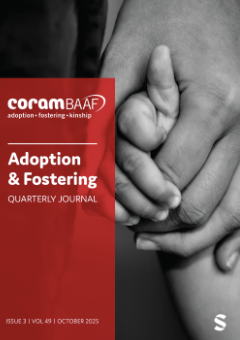Informal foster care is a prevalent alternative childcare arrangement in South-East Nigeria, providing care and protection to support children in need. While the practice has been commended for promoting alternative childcare in a family environment, there is a dearth of studies on the challenges associated with this arrangement. This study aims to provide indigenous knowledge on the informal fostering practices of the Igbo ethnic group in South-East Nigeria, highlighting the challenges involved. Culture-specific knowledge on informal child fostering practice can help to inform practice and help social workers become more confident when supporting foster households. In-depth interviews were conducted with six community leaders and 11 social welfare officers. The findings demonstrate an absence of regulatory processes, data on the number of children in informal foster care and support services for children and foster parents. This article argues that to ensure the safety of children within this cultural practice, government agencies and child welfare professionals, especially social workers, need to be involved.

